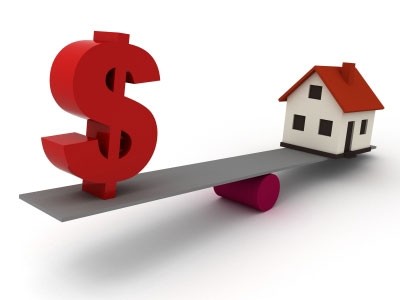How to Profit From Your Home Sale
Post on: 9 Июль, 2015 No Comment

There was a time when homeowners put their houses on the market as-is, and hoped for the best with regards to how much money they made on the sale.
A lot has changed since then. Homeowners have become more investment-savvy, understanding that, although there’s a large emotional investment in their home, the financial investment is just as important. The pain of losing so much equity during the housing crisis stings, and sellers are looking for any advantage in the market to help them get top dollar for their homes.
Lucky for you, there are ways to pump up the volume when it comes to extra dollars at the closing table. Read on for a few suggestions to help you profit from your home sale.
The DIY Home Sale
Now, before the real estate agents in the room start throwing tomatoes at me, let me get this out of the way up front: Selling your house without a real estate agent may be hazardous to your pocketbook.
Or, it may just allow you to profit even more than if you use an agent. It depends on how well you market the home, how well you negotiate, how contract-savvy you are, and how much time you have to devote to the process.
Although commission rates vary across the nation, 6 percent of the sales price is typical. So, if you’re selling your house for $150,000, aside from other fees due at closing, you’ll be on the hook for “real estate fees” in the amount of $9,000. There’s a hefty chunk of your profit, right there.
Now, do you think you have what it takes to sell your home by yourself? Remember, you’ll have to do all the marketing, all the showings and all of the paperwork, unless you hire an attorney.
One thing to keep in mind: Your aim is to profit from the sale of the home. One misstep in the process be it setting the wrong price or not negotiating properly with buyers may backfire on you and actually cause you to lose money on the sale.
Negotiate Fees for Greater Profits
If you don’t want to sell the home yourself, ask your agent to reduce his or her commission. Many real estate agents won’t negotiate their fees although it is perfectly legal for them to do so. Most states have laws, in fact, that real estate commissions are negotiable. Ask the agents you interview if they are willing to negotiate a lower commission.
Here are some of the responses you will receive to that request:
“If I can’t negotiate with you to keep my full commission, how can you expect me to negotiate on your behalf when it comes time to do so with a buyer?”
Answer: I trust you. You have a fiduciary duty to negotiate to the best of your ability and I trust that you will do so.
“Buyer’s agents won’t show the house to their clients if they know that their commission will be cut.”
Answer: Those agents should be reported to not only their clients, but their brokers as well. But, if it’s truly the case that they will refuse to show my home, then you take the reduced commission and offer a full 3 percent to the buyer’s agent.
If that doesn’t work, there are companies that charge a flat fee for listing your home. It’s a lot like doing a for-sale-by-owner, however, so make sure you’re up to the task.
Price Your Home Aggressively
When your agent hands you the comparative market analysis ask for him or her to justify how the current market value and suggested list price was determined. This is critical information.
If your home isn’t priced correctly, it may sit on the market and become “stale,” until you eventually drop the price. You may even need to drop the price several times to drum up interest in the home. The longer a home stays on the market. the more you’ll need to make concessions on the price, according to the National Association of Realtors®.
The list price should reflect what area homes similar to yours have sold for over the past three to six months. If no homes compare to yours, adjustments should be made to reflect the differences, especially in age, condition and location.
In a slow market, you may need to price the home slightly below market value to generate interest. This tactic sometimes results in multiple offer situations. Consult with your real estate agent about how to proceed in your particular situation.

Sell Your Home at the Right Time
In a perfect world, we could all choose when to put our homes on the market. New jobs happen, though, forcing relocation. Many other life events aren’t in our control. If you are among the fortunate who aren’t being forced to sell the home and can wait for the optimal time, read on.
Local real estate market conditions dictate the ideal time to sell your home. The best time to sell a house is during a seller’s market when there are more buyers in the market than sellers. Of course, the wait for a real estate market to change may take years.
Real estate markets also fluctuate with the seasons, slowing down in the winter and heating up in the summer.
Dazzle Home Buyers for Easy Profits
Most buyers want a home that is in turnkey condition, according to a study performed by marketing research firm Maritz. The study found that 63 percent of homebuyers polled claim they’ll pay more for a home that is move-in ready.
So, what is a move-in ready home? For starters, it’s a clean home. Dirty homes turn buyers off and give the impression that the home isn’t worth much.
A survey of over 1,000 real estate agents suggests that spending $100 to $200 cleaning and decluttering your home can net you an extra $1,500 to $2,000 at the close of escrow. That’s not a bad profit for such an easy task.
Since we’re talking about profit, let’s take this concept a step further and discuss staging the home. This is where the big return on investment comes in.
According to statistics published by the Real Estate Staging Association (RESA), staged homes spend 78 percent fewer days on the market than homes that aren’t staged. Remember, you risk having to lower your price the longer the home sits on the market. Anything you do to make the home sell quicker helps you profit from your home sale.
Making a profit from the sale of your home may be challenging in the current economy. Selling at the right time, if possible, will help. Making the home attractive and available to buyers presents the best opportunity, though, to reap big rewards at the close of escrow.














